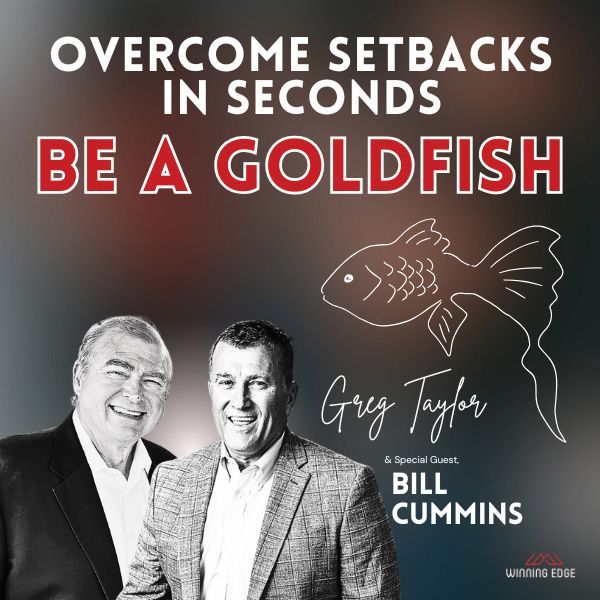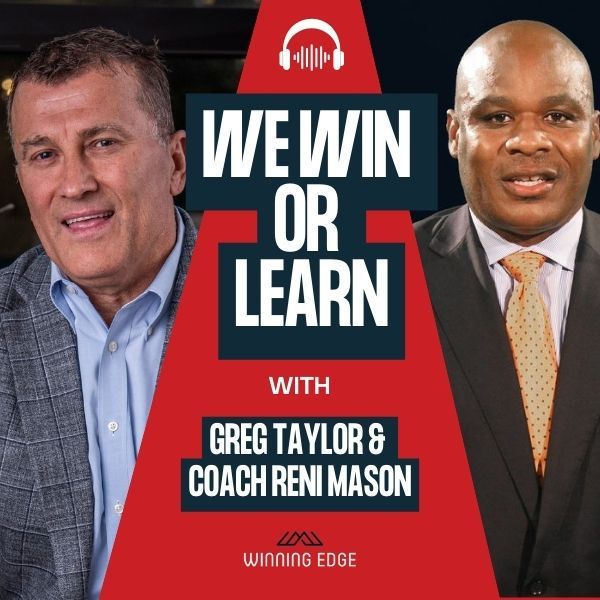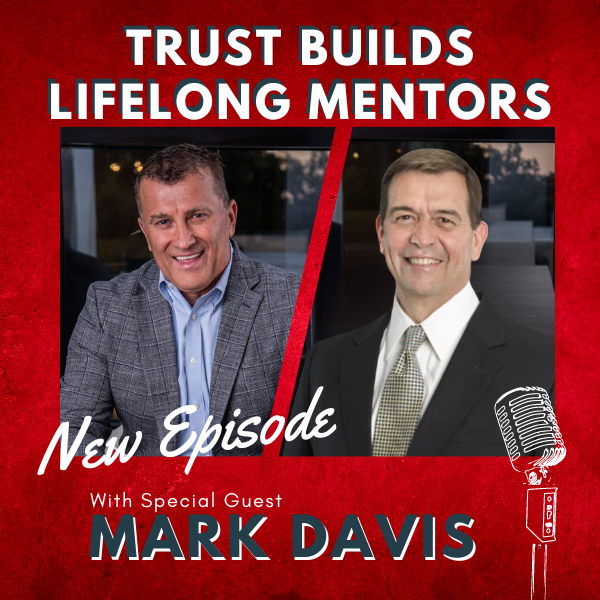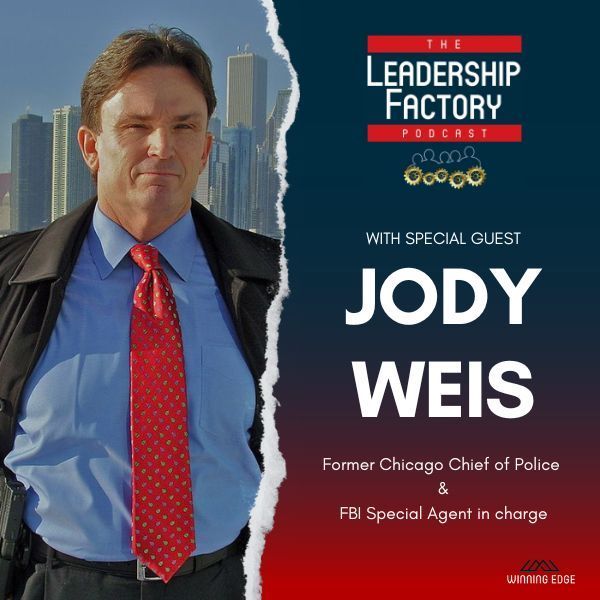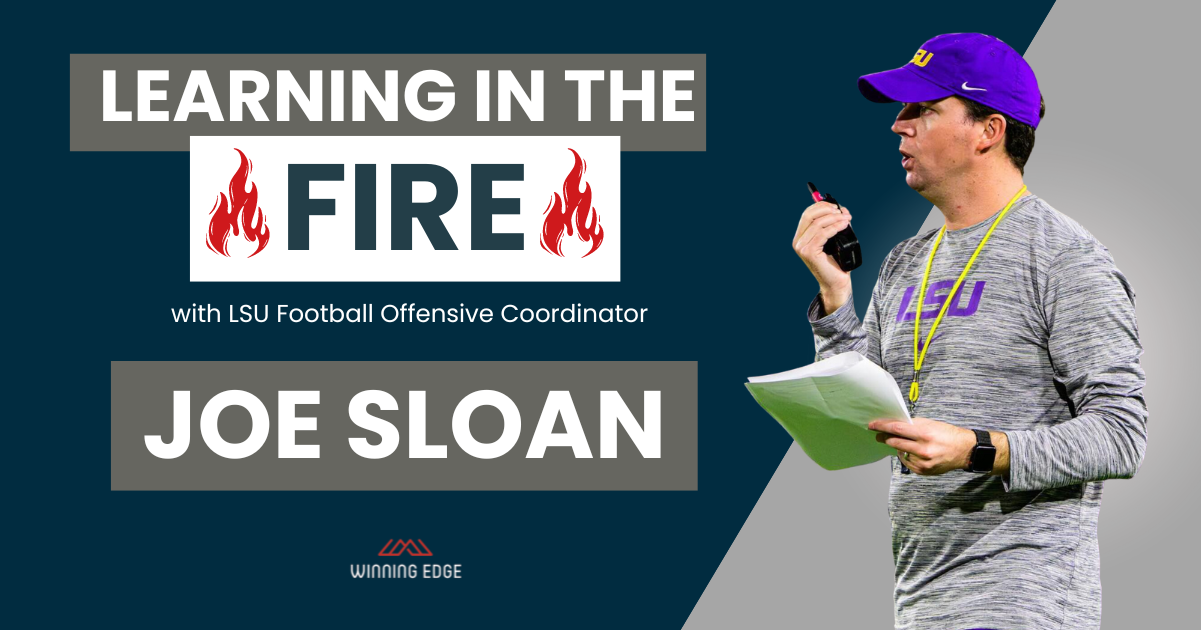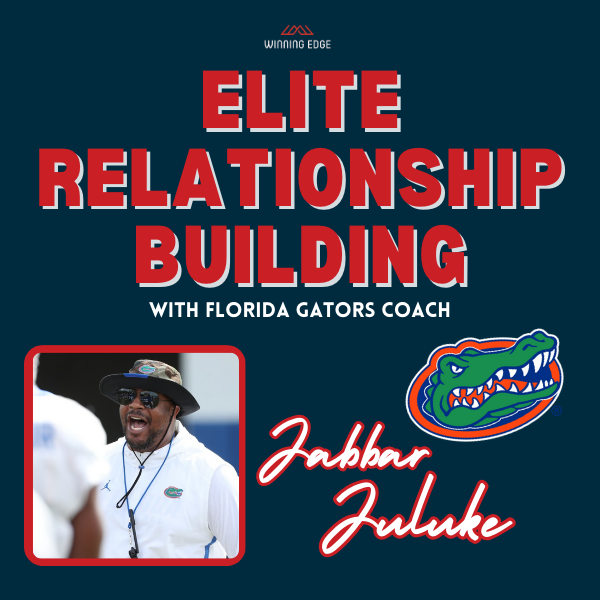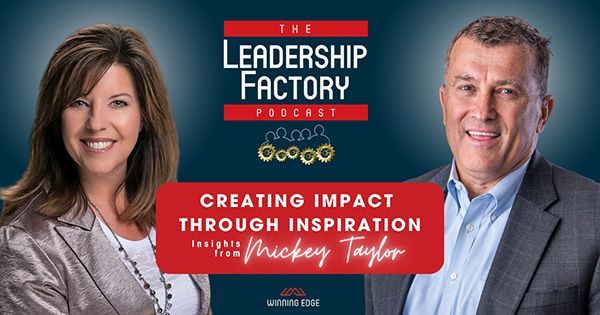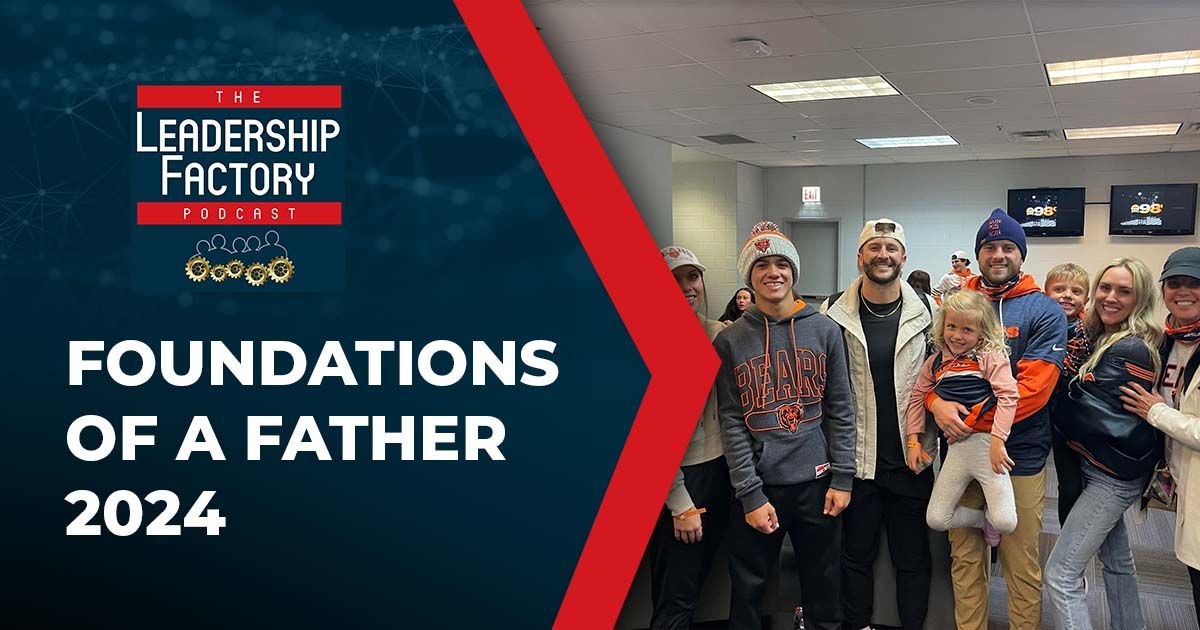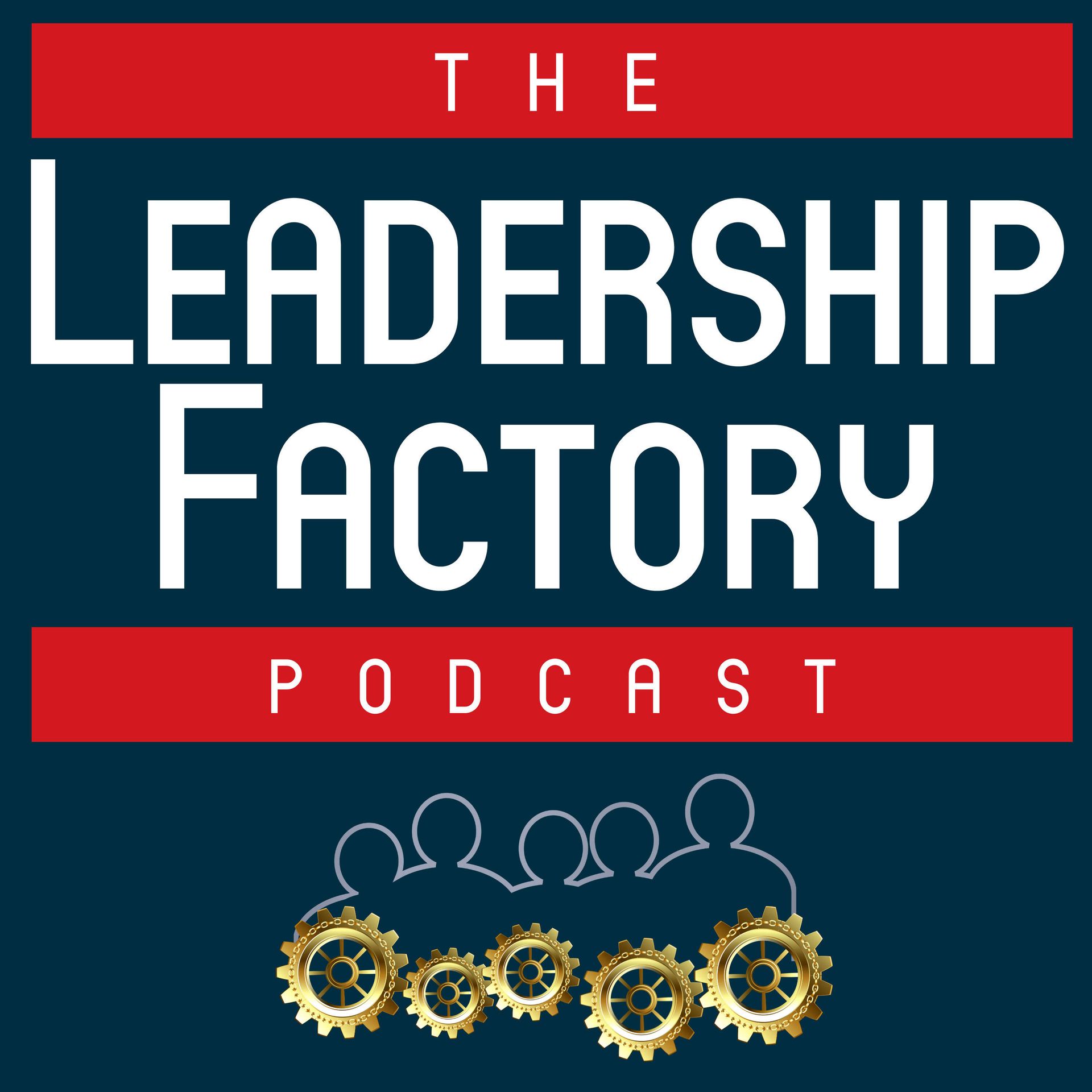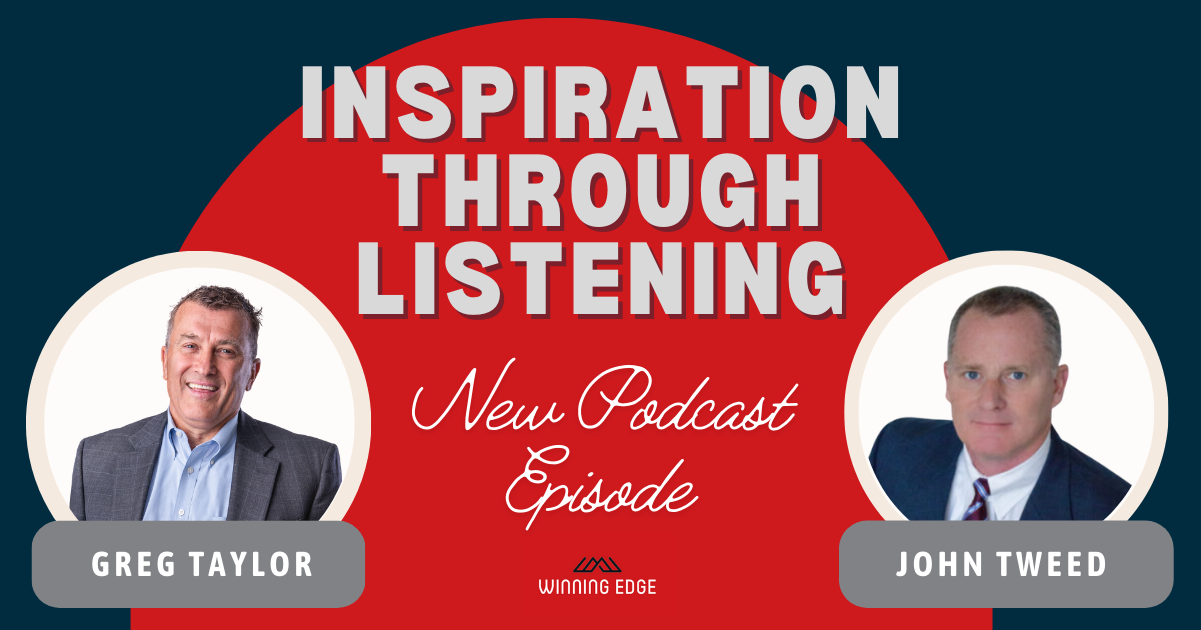
In this episode of the Leadership Factory podcast, host Greg Taylor interviews John Tweed, a distinguished leader with 37 years of experience in the distribution and freight transportation industries.
John recounts his career journey and the mentors that significantly shaped his leadership approach. He also discusses negative experiences, the importance of clear communication, accountability, and trust in leadership, and the significance of spending time with people to build trust and inspire them.
John reflects on the impact of his family, especially his mother, whom he regards as his unsung hero for her unwavering support and resilience as a single mother. He highlights the lessons learned from his family and the importance of empowering others by listening to and valuing their input.
The episode concludes with a mention of John and his wife Kim’s philanthropic efforts through the Tweed Family Foundation, which is dedicated to serving Northeast Tennessee, particularly in addiction recovery and enhancing overall well-being in their community.
---
Listen to the podcast here
Inspiration Through Listening With Special Guest John Tweed
In this episode, host Greg Taylor interviews John Tweed, a distinguished leader with 37 years of experience in the distribution and freight transportation industries. John recounts his career journey, including his early mentorship by Scott Niswonger, who trusted him with challenging roles despite his inexperience, and David Parker who introduced him to a faith-based leadership style focused on prayer and ethical decision-making.
These mentors significantly shaped John's leadership approach. John reflects on the impact of his family, especially his mother, whom he regards as his unsung hero for her unwavering support and resilience as a single mother. He highlights the lessons learned from his family and the importance of empowering others by listening to and valuing their input. This episode concludes with a mention of John and his wife Kim's philanthropic efforts through the Tweed Family Foundation, dedicated to serving Northeast Tennessee, particularly in addiction recovery and enhancing overall well-being in their community. Get ready for the one and only John Tweed.
---
Introduction
John Tweed, welcome to the show.
Greg, thanks for having me.
It's a pleasure for you to be here.
I'm enjoying it already. We're just getting started.
We had to get our juices flowing a little bit.
There you go. You got me prepped and ready to go.
You were ready when you were born. Just to set the premise here for everybody that's tuning in. Over 37 years of being a leader, a trainee, a frontline leader, a middle-level executive, and a business owner, I've found one conclusion to leadership. The definition that we use in this show is a leader is a person who can inspire another person to take a journey that they're not willing to take by themselves.
The whole premise is that we're trying to help the audience inspire another person. It’s going to be a very inspirational discussion between me and you. How do you do that? We're going to be talking about how people affect us. We'll let it go from there and where it takes us, where we're trying to help people in our audience become that inspirational leader.
Sounds good.
Best & Worst Leader
Thank you, game coach. I think you got this. Hot question right out of the gate, who is your best leader and why? What do you know about them? What did you see them do? How did they make you feel?
My story is a little different. My career is a little different. I've only had two leaders in my entire career. One was early on and then I went through a period where I was on my own as a leader, owner, and company and leader. After we sold the company, I got the privilege of working for a guy that was inspiring to me. I would say both of those leaders were good in their own way. I'm going to quickly take you through what I mean by that. If you look at Scott Niswonger, who I started working for right out of college. I was 21 maybe.
He was such an encourager. I was crazy enough that I would do anything and try anything. If he put a challenge in front of me, I was going to do it. I never thought I couldn't but what was remarkable was how he encouraged me and how he allowed me to take on things that I didn't have the resume for. He would give me the room to make mistakes and be okay with that. I can remember other parts of the pieces or people in the management team would look at him like he was crazy when he would allow me to take on roles and responsibilities.
It was all I needed because it was that confidence. He had more confidence in me than I had for myself but it wore off on me. His inspiration and encouragement are what got me to the point in life where I don't have other words. This may not sound great, but there wasn't anything. Once I decided, I figured out I was going to do it. Typically, getting me to decide I was going to take on a challenge that was the biggest. Once I took it on, I was good to go. I'm going to do this.
You're an all-in dude. “Once I decide I'm in, I'm in,” because you cannot optimize your own performance if you don't get all in. You're a leader, you're an entrepreneur, and you're going through the woods or you're knocking these trees down and somebody is on your bus, they got to get in. If they're half in or half out, they're giving you wind shear and they're slowing you down. Mr.Niswonger saw you as someone helping you push through the trees. You got all in on what was going on.
He was amazing. I wish I were that encouraging in my leadership. He was that amazing. He took the risk in me that no one else would. As I said, there were people on the management team, the senior leadership team, that would look at him sometimes. “I cannot believe you're going to let this kid do this. We'll see how it works out.”
The other privilege I had was working for David Parker of Covenant. David taught me a faith-based leadership style that was beyond anything I'd ever seen. David truly led his business with prayer. He did the right thing even when it cost him money. When he was confronted with needing to make a difficult decision, he did it in his prayer closet.
There were times I questioned that. He also allowed me to do things with his company and other people. We made such a dramatic change in how his business was structured and operated. There were a lot of people questioning, whether letting me do that was the right thing. Every time I go to David with something, he'd be like, “110%. Let's do it.” It has paid off but I think it's because of the strength he had in his faith in God and he prayed about, “God, should I let this guy do this?” Evidently, God told him yes, because he gave me a lot of latitude and it's paid off. They've got a great organization. They've got a great leadership team and they're generating phenomenal results.
I met Mr. Parker, I always had the pleasure to meet him. He's a very nice guy.
I love David. He's a close friend. When we sold the company, I was only supposed to stay six months. It was my love for David that initially got me to stay longer because I had a lot of plans with my life that we put on hold so that we could help him accomplish the things they've done, but he's a phenomenal individual.
A leader could be anyone in your life who will tear those walls down for you. It could be a coach, a teacher, a friend, an aunt, an uncle, a mom, a dad, grandparents, or whoever inspired you to do something where you didn't think you could do it by yourself. I know you're very confident in yourself. It's like you just got to get bought in. For the people tuning in, to me, the biggest word that I got out of your conversation was trust. There's trust involved. There's magic because trust is the electricity to inspiration. Without trust, you cannot inspire.
The definition I use for trust is it is when you fully depend upon or fully rely upon someone's character and/or their abilities to help you get what you want because they trusted you. However they did that, there's something inside all of us that we either trust or don't trust. Can we explain it? I don't know. If you get someone to trust you, they have like 10 to 20 ways to build trust because once you build trust, you can inspire. Once you can inspire, you can be creative. Once you’re creative, you can solve problems and you can optimize customers, teammates, and products.
The only thing I would say about that, and maybe it's just a play on words, is I would use the word faith. Trust is something that can be built over time. In both of these situations, I described and in both of these leaders, they didn't know me long enough to have trust in me. They had faith in me, and that came from somewhere else. They probably initially gave me trust I hadn't earned yet. Somewhere in their faith, they saw or God told them, “This is an opportunity. Let it roll.’
Trust is built over time. Faith is given.
Who's your worst leader and why? Don't have to name anybody. You can be in your world from 0 to 22 because you're just 22. In that whole world, someone who demotivated you? I know you cannot be demotivated. You're an overcoming person. Who's someone that didn't hee-haw with you and why?
I'm going to use the word or the name Fred. His leadership style was one of which was conflict. Fred didn't do a good job of articulating what someone's responsibility was, how they were going to be measured, and then have feedback. He didn't have that tool. He came up with some disruptive tools to help him figure out whether people were doing what they were supposed to do or not. It was disruptive to the team because basically, he allowed the team to tell each other to figure out whether it was getting done. I'm a big accountability guy.
When I went to Covenant, David had an instinctive way that he led. He loved people so much, but when someone like me walked through the door, the thing that I questioned was, are we holding people accountable? We had a long conversation. I spent some time before I had the conversation with David, going through the Bible and identifying what the Bible said about accountability because I knew nothing else would speak to him.
When we put P&Ls, metrics, measurements, and feedback in place, not only for each department, but for some of the people, the organization lifted up rapidly from 1) Having those metrics, and 2) Developing some expectations of what should be accomplished and phenomenal results. What I would say about Fred is he didn't have a functional way to articulate responsibility, measurement expectations, and feedback. That creates a lot of confusion and disruption among the organization and team members.
My wife has a saying that she uses on me all the time, “Clear is kind. Kind is clear.” Fred wasn't clear. I've been with leaders like that. They like to create confusion because they want to see how everybody reacts to the confusion, but that's exhausting. I've been on those teams where my leader, Fred, was all about creating confusion.
That didn't work for me because I wasn't that type of player. People who are subject to intimidation operate well in that environment. Unfortunately, because my wife says I don't have that attribute, I don't even have a place where it goes.
Tat's right because if you want people to think independently, they got to be a part of a team, but they got to still think independently, but they got to come into the team. The toughest thing I've done to be on a team is surrender my rights to the leader, but I will do that if the leader allows me to speak what I feel. My mentors and leaders at Averitt Express allowed me to speak, even though I was wild and rambunctious, “Let him talk,” and then they would decide what to do.
I was so thankful that they allowed me to speak. They allowed me to speak. They wanted to hear what I had to say, which gave me value and made me trust them. It made me dig harder. It made me learn harder. It made me read more books. It made me study more trade journals. How can I help them become better?
That's key. I'm not always great at this even as a parent, but the points you made about empowering others by listening to them, making them feel valuable, and hearing what they have to say. My son holds me accountable for that because I'm not always great at it. I'm always wanting to talk about what I want you to do. He will accidentally sometimes say, “Dad, check yourself and you listen here for a second.”
I've grown a lot because of people like him. You knew my team and they weren't yes people. We had a process for what I call fighting it out but then when everything was on the table, we organized it, aligned, and attacked. I haven't always been great at that but fortunately, I've had people around me that required me to be. It has helped me to develop that skill as well.
You take your notes because if it's not on paper, it's vapor. I'm going to say some things here quickly that we've talked about here for the last 10 or 15 minutes. You've got to give people room to make mistakes to inspire them. They've got to know you have confidence in them. Once they see you taking a risk with you, you're going to be inspiring them even more. There's got to be accountability.
I love one of the things you said. You've got to be able to speak your boss's language. I have eleven things to turn your boss into a mentor. You've got to be able to speak their language. You've got to understand their pain points. You've got to understand how they process information. If you cannot connect to them, they're not going to trust what you've got to say. If you can connect to them and how they view things and you speak their language, the probability goes up that they may take that information and use it.
Everyone is accustomed and you communicate accordingly. People used to describe me as being a good salesperson. I've even had people say, “That's his thing. He's an expert on whatever he sells.” The reason I'm good at it is it took me 33 years to find a wife. I had a lot of practice selling.
You just gave Kim a big compliment.
She deserves more than that. I had a lot of practice that tried to sell this. I learned that you take those same skills with customers and employees. Understand what's important to them, and then figure out a way to get your message across to them based on that. You tend to have a little more success. As I said, I believe God gave me kids to develop me, not for me to develop them.
To get your message across more effectively, first understand what matters most to your customers and employees.
I agree.
I look at my children today, and all three have accomplished some phenomenal things. I feel like I didn't do anything for them, but they sure have made me a better man. That's one of the attributes that they've worked on over the years as well.
Building Trust And Inspiration
I tell everybody that Trey and Trent raised me, I didn't raise them. When you take something that knows nothing and you're responsible for developing their thinking and their belief system, that's a lot of responsibility. There's trial and error and there are wins and losses, but it's the process. To go back to what you said something earlier, this is my interpretation. Getting to trust, you have to STOP, Spend Time On People. Until you spend time on people, you can never get them to trust you. To me, trust is electricity inspiration. The number one way to build trust is by spending time on people.
Getting their trust and knowing where they're at. I feel like when you're leading folks and you're trying to move them in a direction and articulate to them what that direction is and what needs to be accomplished. I used to say to folks all the time, “If you call me and ask me how to get to California, what's the first question I'm going to ask? Where are you at?”
If I'm going to try to lead you to accomplish an objective and how to accomplish that objective, the first thing I got to understand is where you at with the topic. What do you think about the issue or the challenge ahead of us? We then go from there to where the team wants to align around. Many people forget to try to understand where’s the individual at. I'm getting carried away. I'm going to take up the whole hour if you keep on talking.
If I'm going to lead you to accomplish an objective, then the first thing I need to understand is where you stand on the topic.
People don't want to hear from me. They want to hear from my guests. You're speaking the truth there. If you want X, where are you currently? Leaders go to where people are. They don't demand them to come where you want them to be. To me, the greatest form of honor is when you honor someone so much that you'll get off your high horse and you'll walk and meet them right where they're at. That's what I heard you say. My interpretation of what you said is that I have to meet people where they're at.
I would like for you to think that I'm such a fabulous person that I looked at it from that standpoint of respect. Unfortunately, I don't know if that's true. I think it's just that I was so driven to help the team accomplish the objective. These are the things I learned you have to do. Don't make me out to be a great person, because if anybody is tuning in to this who knows me, they're going to think this is a false show. It was about what I learned we had to do to lead people in the direction we wanted them to go.
Sometimes you don't learn in the middle of it. You learn when you reflect upon it. John Maxwell says “Experiences are good, but reflected experiences are even better.”
I would agree with that. I would tell you right now, if I went back to work today, I'd be a better leader than when I was doing it. Part of that was because of my career. Part of that is recovery. What I've learned going through recovery with my family. David Parker is a big part of that. He taught me a way of faith-based leadership that was beyond anything I've ever experienced in my life. I wish I'd had those attributes twenty years ago instead of the last three years of my career.
You got you got 30 years in front of you.
I’m just not sure what I'm going to do with it yet.
Unsung Hero
Here's a question for you. Who's your unsung hero?
There are so many people who are honorable mentions on this. Hands down, number one is my mom. I get a lot of my spunk, drive, and positive characteristics from my mom, especially with my work ethic and how I approach determination. My dad left when I was young and my mom was a career woman. She pursued a career moving from different towns around but she also single-handedly raised two children. One of them wasn't easy.
Is that your sibling?
She just did it and she never complained. That's the thing that blows my mind. When I reflect back on the things as a three-party family, we went through together, and I was a miserable teenager to live with. In my mind, I was happy, but everybody else around me had to endure a lot of misery while I did what made me happy. She kept coming back and she was always there. Our lifestyle compared to I guess some others wasn't as elaborate or as luxurious as kids get to enjoy today, but we had everything we needed. She would bust your butt. You're talking about accountability. You got feedback every night when you got home. It was more instantaneous than a video game.
She did that because she loved you. She wanted more for you.
I think there was a lot of love. There was a little fear.
That comes with it.
I learned that. Fortunately, Kim and I made a commitment many years ago that we weren't going to leave each other with these kids. No one wanted that job by themselves when you look at our kids. My mom did, and she was there. She did it all. She never complained. She kept coming back.
Is your mom still alive?
Yeah, She's 81 years old and she runs her own philanthropic organization. She's involved in twenty others. It's amazing.
Do you want me to give you a good movie to go see with her?
Yeah, sure.
Unsung Hero.
I'll do that. I brought her to Nashville last week for an update appointment at Vanderbilt. We spent 36 hours together after that appointment hanging around. She had never been to Bucky's. I took her to Bucky's. We went to eat at Sparys and she got to help them make a banana foster. She had a big time. I told my wife, “I got to do more of that.”
STOP, Spend Time On People. That's good, coach. That Unsung Hero, after ten minutes, I looked at my wife. I said, “Honey, I've cried four times. I don't know if I can make this much longer.” It's a story about struggle. It's a story about how we have all this money in a 6,000-square-foot house, then we move down to a house that has no furniture. It's the struggle of a dad feeling failure and a mom trying to pull. They went from Australia all the way to America. All those struggles were in there. The unsung hero is the mom. She's the glue.
I saw my mom there. I saw my wife there. I saw my sisters there. I saw aunts there. It's emotional but it's real. It's a real movie about real life because people struggle in life. It's what it is but there's victory. It's an unsung hero because an unsung hero will lay it all on the table and they don't know if they're going to win or lose but they have faith, There's something inside of them that says, “Don't grow weary, and well done because, in due season, I'm going to win if I don't give up.” What creates that? They keep moving, then this magical ending is amazing. It's a true story.
How many kids were there?
Tweed Family Foundation
Six. It's an amazing movie. Unsung Hero, go see it. Coach, tell us a little bit about your foundation.
Are you talking about our family foundation?
Yes, sir.
When we sold the company, it was interesting. All my career, my job was to make money, and my partner did a good job of identifying those places that we would support to give back, to help others. When we sold the company, I became aware of a new season where Kim and I weren't going to have someone who did that because we're on our own now. Scott is an unbelievable philanthropist. I'd make the money and he'd tell me where we're going to get it. Anyway, Kim and I got to talk about it and we're trying to figure out what we want to do to complete that part of our life.
We got to thinking about how we wanted not only our kids but our broader family to have the privilege to engage in giving back. That's where we decided to put together a foundation. It's very low-key from the standpoint of its brand. Our mission is to support causes that lead people to Christ. Our definition sometimes gets a little broad because we believe in the Maslow hierarchy of needs approach. If people aren't getting their basic needs met, they probably don't have time to worry about their spiritual ones. We try to tend to look at those types of things. If you were to look inside or look on the website or wherever the things we support.
If people aren't getting their basic needs met, they probably don't have time to worry about their spirituality.
Can you give us the name of it?
It's called the Tweed Family Foundation. There's a broad variety of things we support. A lot of those come from our kids' experiences, things they've struggled with, and organizations that we've been drawn to because we see others struggle with the same thing. It's all about meeting people's needs and leading them to Christ. The board consists of my mom, who's a wonderful philanthropist. Both Kim and I have sisters that are on the board and our kids. That's the decision-making. It's low overhead. We don't have any costs. We just give money away.
Is that something you always thought about doing? Did God plant that in your heart or did he plant that in your heart through one of your loved ones?
Kim.
Your wife, okay. You need to hold on to her, Coach.
I thought I might.
That's why you're good at HR. You're a good picker.
I told her the other day, I said, “I admire people who have been married 50 years and for us to accomplish that objective, I think God is going to keep me here until I'm 83 because that's what it takes for us to cross the line.” I reminded her that she has to be here too so we can successfully say that. I want my time to be first because I don't want to be here without her.
Next question here, Coach. What is the biggest “I'm so glad I took that risk” story of your life?
Going back to Landair. I left Landair in ‘95 and started warehousing supply chain business. There was a split between Landair and Forward Air that people weren't going to understand at all, but there was a company called Landair that struggled. Scott, my mentor and partner asked me to come back and run the company. It was a public company when I first went back. I had a pretty good life with this supply chain business. I was making a good living. I was working about six hours a day and day trading about two hours a day.
I just had a new family. When Scott came to me, first he came to me and said, “What do you think I ought to do with this business?” I was like, “Sell it.” The second time he came to me, he said, “What do you think I ought to do with this business?” I said, “Sell it.” He said, “I think you ought to come back and fix it.” I'm like, “Don't do that to me. I have a great life here. I'm doing fine. I've got this family thing. That's going to be a big undertaking that I didn't want.” The third time he came back, he said, “I really need you to do this.”
It probably came out how grateful I am for all that he did at the turning point in my life. That following Sunday, I walk into my Sunday school and I'm in there by myself and the teacher comes in before everybody gets there. She could tell that I was perplexed about something and I described it to her. She said, “I think you ought to do it.” For me, that was hearing God. The next morning I go to Scott's office and I'm like, “I'm going to do it. I'll be here on this day.”
He wants to bring the attorneys in and everything and I'm like, “Just figure it out. You've always been fair to me. I'm not doing this for the money. I'm partially doing it to show you it can be done, but I'm doing it because I'm called to do it. You figure out the rest of the work.” It was a turning point in my life and my family's life, but it was such a phenomenal journey. There were eighteen years of a lot, a lot of people, a lot of experiences, a lot of growing, and a lot of failing. People don't talk about that.
Where there's growth, there's failure. You cannot grow without failure.
There was a lot of failing, especially on my behalf.
Without failing, there is no growth. How do you know?
I didn't want to do this and I almost didn't. I'd already deterred Scott, so he was off my back. Something was weighing on me, then when I heard Terry or the Sunday school teacher say, I think there's this power speaking to me and I'm like, “Okay.”
Did she know what you were struggling with?
I describe it to her. I tried to keep the names out of it, but I described it to her.
That's awesome. Last question, Coach. What is your winning edge or you can say, what is your special sauce? What makes you tick?
Persistence. I'm slow, my wife will tell you, to decide to commit to something. Once I'm in, it's just persistence. There are a lot of times I've been privileged to be able to make things happen. When I was young, I used to be inspired to do things nobody thought could happen. The only way that you would see success is because of God's grace and lack of willingness to give up. I've had people tell me before I should give up.

I want to slow down here a little bit. I want everybody to hear that. A lack of willingness to give up. You just cannot. That's good.
I wasn't smart. I don't have a pedigree. I'm not overly intelligent. As you can tell, I'm not great-looking.
You're a good-looking coach.
My wife says I have a gift of the gab. I'm a words man but that's all I had going for me, some words and a willingness to give up. That's how I got her. It took me three years.
Are you a fan of Babe Ruth?
Yes.
He's got a quote, “It's hard to beat a person that never gives up.”
Because they'll be back.
You just cannot give up. Thank you so much for coming on here and sharing your stories and how people inspired you. You've dropped a ton of nuggets on us today. Maybe the title of this is to never give up. It could be persistence. It could be take risk to people. Give people room to make mistakes. Accountability is a big thing.
Especially today.
Iron sharpens iron. Thank you, John, for being here.
My pleasure. It's been fun.
Audience, write those three things down. I challenge you in the intro to write three things down. I want you to be a very effective leader. Now you've got to figure out the most powerful thing to do. What's that one domino that can knock the rest of the domino issues out of the way? As one of my mentors told me, “Greg, once you figure out the most impactful things to do, you'll be further ahead than everybody else.” Thank you, John, for being here. Thank you for all those tuning in. God bless you all. Go have a great day and inspire someone to do something that they will not do by themselves. Thank you all very much.
Important Links

